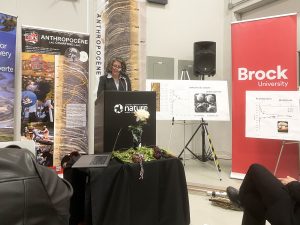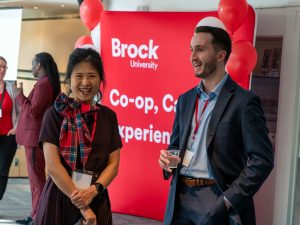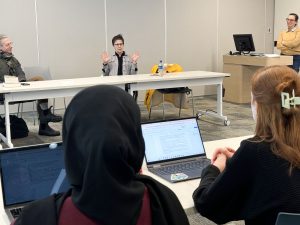Ted Gibson from the Department of Brain and Cognitive Sciences at the Massachusetts Institute of Technology (MIT) is coming to Brock.
Gibson’s research focuses on applying information and communication theory in order to understand how language is understood in real-time.
He proposes that language comprehension involves a “noisy channel process,” which is a framework used in such language computer programs as spell checkers and speech recognition. The model uses mathematical formulae to figure out a word whose letters have been scrambled in some way (ie. missing letters, additional letters, letters out of order, etc.).
Gibson will discuss how language comprehension appears to function as a noisy channel process and how thinking about language in terms of its communicative use can help explain aspects of the origin of word order differences across languages.
All are invited to attend this free lecture, which occurs Thursday, Nov. 28, 12:30 to 1:30 p.m., Plaza Building 600F.
Light refreshments will be served after the talk. For further information, contact Prof V. Dwivedi at vdwivedi@brocku.ca (x5389)
This lecture is part of the Department of Applied Linguistics Speaker Series.
About Ted Gibson:
Ted Gibson got his undergraduate degree in computer science and math from Queen’s University, Canada. He then received an MSc in computer speech and language from Cambridge University and a PhD in computational linguistics from Carnegie Mellon University in 1991. Since 1993, he has been on the faculty at MIT in the Department of Brain and Cognitive Sciences, becoming full professor in 2004.
Gibson works on all areas of language above the word level, including syntax, semantics, discourse and intonation. Most recently, his research has been focused on information theory and communication theory applied to language, with a focus on noisy-channel models of language processing and language evolution.









